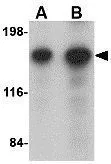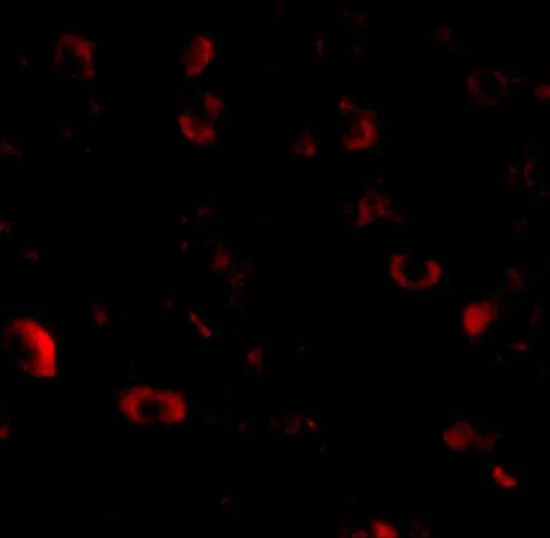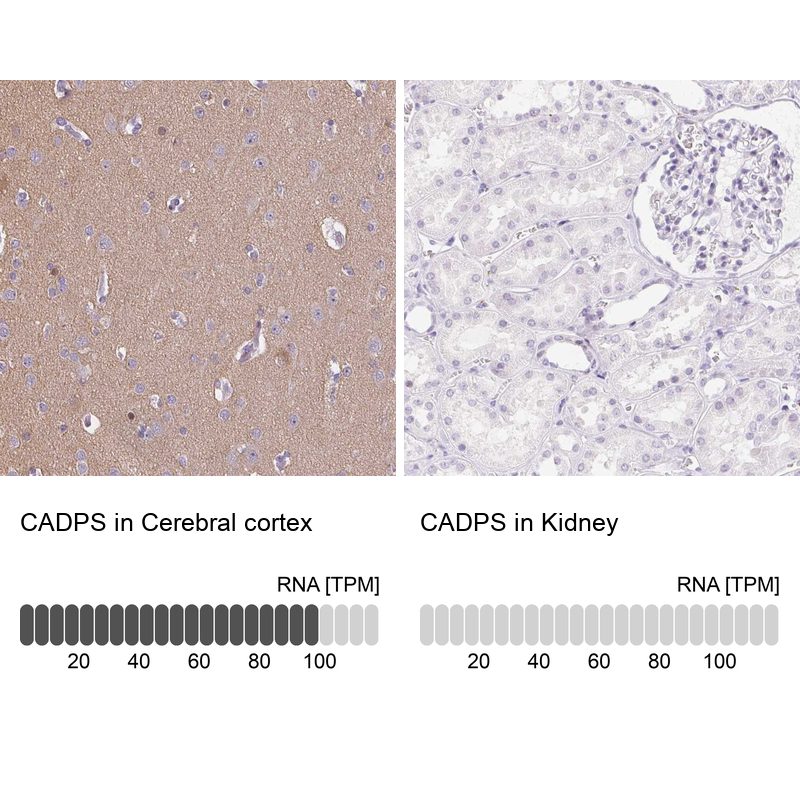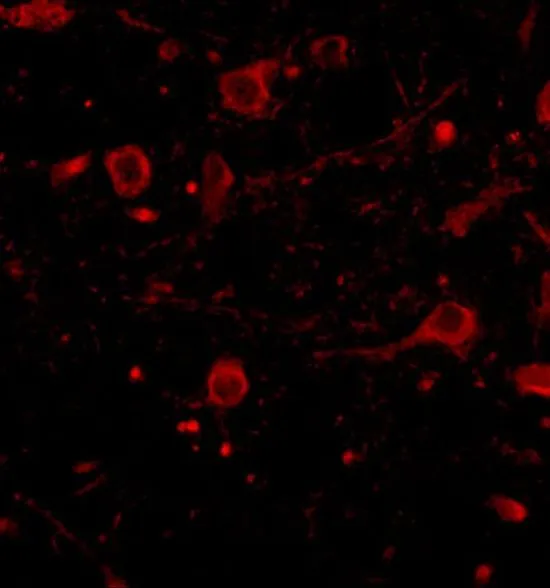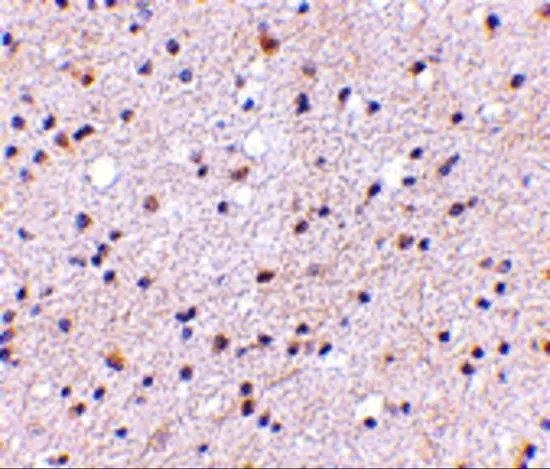
IHC-P analysis of human brain tissue using GTX85036 CAPS1 antibody. Working concentration : 5 μg/ml
CAPS1 antibody
GTX85036
ApplicationsWestern Blot, ELISA, ImmunoHistoChemistry, ImmunoHistoChemistry Paraffin
Product group Antibodies
ReactivityHuman, Mouse, Rat
TargetCADPS
Overview
- SupplierGeneTex
- Product NameCAPS1 antibody
- Delivery Days Customer9
- Application Supplier NoteWB: 0.5 microg/mL. IHC-P: 5 microg/mL. *Optimal dilutions/concentrations should be determined by the researcher.Not tested in other applications.
- ApplicationsWestern Blot, ELISA, ImmunoHistoChemistry, ImmunoHistoChemistry Paraffin
- CertificationResearch Use Only
- ClonalityPolyclonal
- Concentration1 mg/ml
- ConjugateUnconjugated
- Gene ID8618
- Target nameCADPS
- Target descriptioncalcium dependent secretion activator
- Target synonymsCADPS1, CAPS, CAPS1, UNC-31, calcium-dependent secretion activator 1, CAPS-1, Ca++-dependent secretion activator, Ca2+ dependent secretion activator, Ca2+-dependent activator protein for secretion, Ca2+-regulated cytoskeletal protein, calcium-dependent activator protein for secretion 1
- HostRabbit
- IsotypeIgG
- Protein IDQ9ULU8
- Protein NameCalcium-dependent secretion activator 1
- Scientific DescriptionCAPS1 and its related protein CAPS2 encode novel neural/endocrine-specific cytosolic and peripheral membrane proteins. Both are essential components of the synaptic vesicle priming machinery and are required for the Ca2+-regulated exocytosis of secretory vesicles; CAPS-deficienct neurons contain no or very few fusion competent synaptic vesicles, causing a selective impairment of fast phasic transmitter release. CAPS1 acts at a stage in exocytosis that follows ATP-dependent priming, which involves the essential synthesis of phosphatidylinositol 4,5-bisphosphate and is thought to be a specific regulator of large dense-core vesicle fusion. Numerous isoforms of CAPS1 are known to exist. This CAPS1 antibody is predicted to be specific to CAPS1 and not recognize CAPS2.
- ReactivityHuman, Mouse, Rat
- Storage Instruction-20°C or -80°C,2°C to 8°C
- UNSPSC41116161

